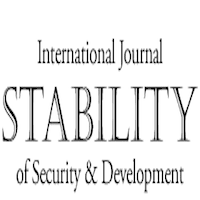Palestinians must not fall into this trap, again!
The lid on the powder keg of the Israeli-occupied Palestinian territory of the West Bank, including East Jerusalem, and the Gaza Strip, has been rattling for years now. Palestinians from all walks of life have lost their voices making the case that Israel’s right-wing government – with its numerous cabinet ministers living in illegal settlements and its fundamentalist prime minister – is pursuing policies bound to lead to exactly what we are witnessing today, violence.
Too few listened.
Reasons for the most recent protests are clear: Palestinians are fed up

This week Israeli forces killed 14 Palestinians, including a 13-year-old child, in protests across the West Bank and Gaza Strip.
Israeli forces maimed and wounded 800 additional Palestinians. Yet despite the deaths of these Palestinians, and the others that preceded them this year, talk of a “third intifada” only began in the international media with the killing of four Israeli colonists.
Ignored, of course, are that popular protests against Israel’s occupation have been ongoing throughout Palestine for years. No, for Israelis and for the international media, an uprising only begins when blood is shed, particularly Jewish Israeli blood.
Benjamin Netanyahu wants bloodshed: A new, deliberately provocative right-wing incursion into sacred ground
World leaders converging on the UN General Assembly will soon be hearing from Palestine’s Mahmoud Abbas and Israel’s Benjamin Netanyahu. They should focus on Jerusalem, which is again at a boiling point and has the potential to be a global flashpoint if international leaders and diplomats fail to address increasingly reckless rhetoric from Israeli government leaders and the provocative actions of Israeli settlers.
The Evolution and Reform of Palestinian Security Forces 1993-2013

This article provides a contextual analysis of the evolution and reform processes of Palestinian security forces over the last two decades. It categorises the evolution of security reform processes into three phases: the Oslo Accords phase; the Second Intifada phase; and the Fayyadism phase.
No let-up in Israeli atrocities

The Israeli occupying force’s latest incursions in Al Haram Al Sharif are entirely predictable. Last week, Palestinians attempted to stop Israeli Agriculture Minister, Uri Ariel, from entering the compound, which is the third holiest site in Islam.
How Obama Can Save The Two-State Solution Before He Leaves Office

President Obama promised that as soon as the Iran nuclear deal is closed he will refocus on the Palestinian-Israeli conflict. Given this shift of focus is now in sight, Obama should grant U.S. recognition of Palestine as an independent state, albeit a militarily occupied one. Such an elementary step is long overdue and may be the sole act that saves the two-state solution.
And when Abbas goes?

The Palestinian National Council (PNC) is expected to meet this month in its first session since 2009 to accept the resignation of Mahmoud Abbas as chairman of the Palestine Liberation Organization (PLO), along with more than half the Executive Committee’s 18 members. The PNC does of course have the option of rejecting some or all of the resignations, and in any case Abbas still wears several hats: he remains head of state, President of the Palestinian Authority, commander-in-chief, and head of the Fatah political party. Moreover, all those who resign are free to stand again.
Denial of Palestinian rights is the real roadblock to peace

Ted Lapkin’s claim that Palestinian national identity is a roadblock to peace is a disingenuous attempt to justify the brutal reality Israel imposes on Palestinians every day.
Lapkin asserts Palestinian nationalism evolved in the 1920s as a negative reaction to Zionism, making attempts at reconciliation “impossible” as it would negate “the central pillar” of the Palestinian existence.
One Year After Ceasefire, ‘Temporary’ Housing for Gazans Seems to be Permanent
An estimated 28% of the population of the Gaza Strip was displaced at the height of the 50-day attack. Ten months later, the last UNRWA collective shelters were emptied, but displacement is still widespread. No one knows exactly how many people still live in the ruined remains of their homes, but according to the Shelter Cluster, a UN coordination body, well over 100,000 families (over half a million people) are still without adequate housing–including the 500 families residing in caravans.






